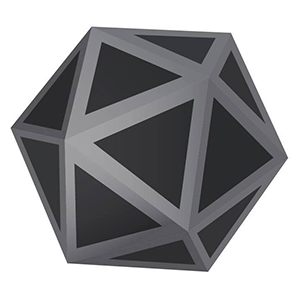
PNK
Kleros
$0.01854
1.79%
Kleros Price Converter
Kleros Information
Kleros Markets
Kleros Supported Platforms
| PNK | ERC20 | ETH | 0x93ED3FBe21207Ec2E8f2d3c3de6e058Cb73Bc04d | 2018-03-15 |
| PNK | ERC20 | GNO | 0x37b60f4e9a31a64ccc0024dce7d0fd07eaa0f7b3?a=0xcb3231aBA3b451343e0Fddfc45883c842f223846 | 2020-10-18 |
About Kleros
Kleros, established in 2017, revolutionizes dispute resolution via the Ethereum blockchain. Implementing advanced game theory, it mobilizes a broad network of jurors to adjudicate disputes in a fast, affordable, and reliable way, disrupting traditional judiciary models. PNK, its native token, is dual-purposed, crucial for governance and staking. Token holders vote on key aspects, influencing platform evolution and Dapp functionalities. Simultaneously, staking PNK is essential for juror participation, safeguarding system integrity and determining juror selection odds. Thus, Kleros, thanks to founders Lesaege, Ast, and Wagner, stands as a pioneering model of decentralized justice, blending blockchain technology with crowd-sourced decision-making.
Kleros, a decentralized protocol functioning on the Ethereum blockchain, serves as a structured platform for settling disputes stemming from smart contract transactions. Utilizing an advanced application of game theory, it encourages a pool of crowdsourced jurors to deliberate on cases that vary in complexity, ensuring resolutions that are generally quick, affordable, and dependable. This method of decentralized dispute resolution refines judicial processes and forges a unique model of distributed justice, fundamentally transforming conventional systems through the integration of blockchain technology.
PNK serves a dual function within the Kleros ecosystem, essential for both staking and governance. For governance, PNK holders exercise voting rights, playing a crucial role in shaping the platform by voting on proposals, court parameters, and other pivotal aspects across various decentralized applications (Dapps). This mechanism is actively employed in governance decisions concerning token-curated lists and court configurations. Concurrently, staking PNK is mandatory for users who wish to participate as jurors. This process not only fortifies the system against potential attacks but also influences a user's likelihood of being selected as a juror: the more PNK staked, the higher the probability of selection in a specified court. These combined utilities underscore PNK's integral role in maintaining and directing Kleros's decentralized justice landscape.
In 2017, Kleros came into existence thanks to the collaborative efforts of founders Clément Lesaege, Federico Ast, and Nicolas Wagner.